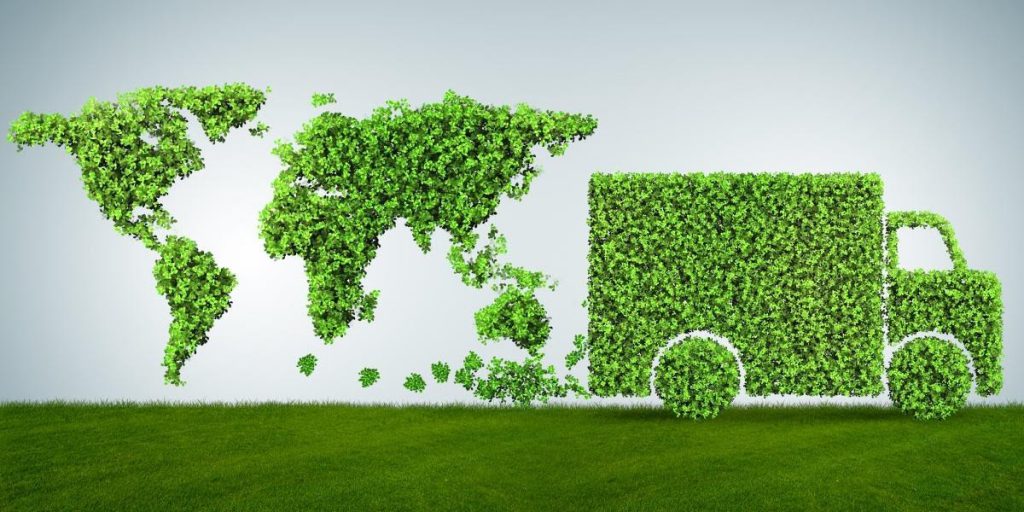The Best Eco-Friendly Business Ideas for Entrepreneurs
Going green is good for business, and companies that don’t take sustainability seriously will likely find that the emerging business landscape will not accommodate them. Those without an eye on the horizon will probably fall foul of new industry regulations and will be unable to keep up with carbon neutrality goals.
Retail analysts constantly monitor consumer behavior. The brands that favor sustainability and have a clear vision regarding the consumer’s impact on the planet see an increase in sales while others flounder and will untimely go out of fashion. Therefore businesses no longer have an option to opt-out of the climate change debate.
Let’s look at some of the new trends inspired by forward-thinking eco-warrior entrepreneurs.
Table of Contents
100% Faster Training Shoes
While Adidas is not an entrepreneur, the designers at Adidas have an entrepreneurial spirit. They have developed training shoes that are made of 100% recyclable material, called Futurecraft. They are made of glueless reusable TPU (thermoplastic polyurethane).
Run these shoes into the ground, and at that point, instead of binning them, you send them back to Adidas, and they are washed (thank goodness for that), ground down to raw material, and re-made into new training shoes. Sadly, they don’t come back to you like a bag for life but are re-created in updated designs, and this practice stops them from going into landfills.
So while the shoes won’t make you run faster they will fast become the prototype for all training shoes in the future.

AI Concepts that Find Clothes that Fit
Any online shopping advocate will tell you that the problem with choosing clothes from website retailers is the lack of certainty. Will it fit? Will it suit me? AI is the eco-friendly answer to the high street personal stylist. The concept behind these apps relies on taking measurements from a customer, and machine learning algorithms suggest style ideas and size recommendations to help the shopper choose accurately.
What’s more, retailers who use this type of software can analyze data to help create inventory and supply chain efficiency and boost brand loyalty with insight into customer preferences. It also means fewer returns, which would result in lower mileage and less packaging being used.
While it sounds like efficient shopping, the downsides are, you’re relying on customers knowing what they want or like, and most shopaholics will tell you there’s no fun in continuity.
Eco-Friendly Fuel
Trucks using chip grease for fuel are a feature in commercial vehicles and have been for a while now. McDonald’s was previously criticized for selling unhealthy meals. Now it claims to be doing its bit for the environment by running its fleet of trucks on old cooking oil. The fast-food chain changed every vehicle in its 155-strong fleet to run on french fry grease back in 2007.
Using old cooking fat is not new, but recently some kitchen sink entrepreneurs have found that used cooking oil makes several viable eco household products, including weed killer. However, some suggestions are more palatable than others.
- Hair conditioner – many oils such as olive and coconut are rich in vitamins and fantastic at adding moisture to your hair.
- Make-up remover – apply the oil of your choice to a reusable cotton pad and wipe over your eyes to remove any make-up.
- Weed Killer – used vegetable oils are a great eco-friendly way to get rid of weeds in your garden. The trick is to coat the leaves and that will kill the weeds.
- Paint remover – To remove that pesky paint from your hands or hair, rub leftover cooking oil onto your hands and leave it for 5 minutes.
- Protecting gardening tools from rusting by coating them in oil

Re-Purposed Technology
A United Nations report found that 50 million tonnes worth of electronics and electrical goods are disposed of each year around the world. Now that is a lot. Especially when considering the number of valuable materials, such as platinum and gold, that are in these devices. Imagine what else could be made with those expensive and finite materials?
That’s where the Swedish speaker company Transparent steps in. Their business model allows for you to continuously upgrade your product when new technologies emerge. This is thanks to the modular design of the technology. It allows you to swap one part of the device without having to replace the whole thing. In short, you essentially get a speaker for life.
Other companies have decided to tackle this problem by building mini-refineries in order to harvest those precious materials from electronic waste. This way they can be reused for other things instead of spending the rest of their life in a landfill. There are also organizations that are recycling electronics by refurbishing and redeploying old or unwanted technological devices. In a sense, it gives your device another lease of life.
Making electronics more sustainable is still a relatively unexplored area that has a lot of potential. All it needs is an entrepreneur with a brilliant idea to really shake things up – so watch this space!
Food Waste Apps
According to foodtank.com, the US is a world leader in software as a service (SaaS). It promotes sustainability in the food industry, which we feel is long overdue. Consumers waste 3.6 million tonnes of food worldwide. By promoting food-sharing apps and other such technology, individuals and businesses can donate food to good causes and stop groceries from being wastefully thrown away.
Food for All, the app that lets you buy meals from cafes and restaurants in Boston and New York City for at least 50% off the retail price. Pay for your order directly through the food waste app, pick up your dinner, and know that you did your part to reduce food waste, saving time and money while you’re at it.
Olio is like Tinder for the indulgent home cook. It’s the best way to get to know your neighbors and share any extra food. Upload your dish or product, wait for a request, swipe left, and connect. Like any social app, users can leave reviews and ratings for each other based on experiences – what could go wrong? Hand on forehead emoji!
From food waste apps to reclaimed training shoes, sustainability is the order of the day; forward-thinking entrepreneurs have a new motto – from green shoots, do new trainers grow or maybe not.


